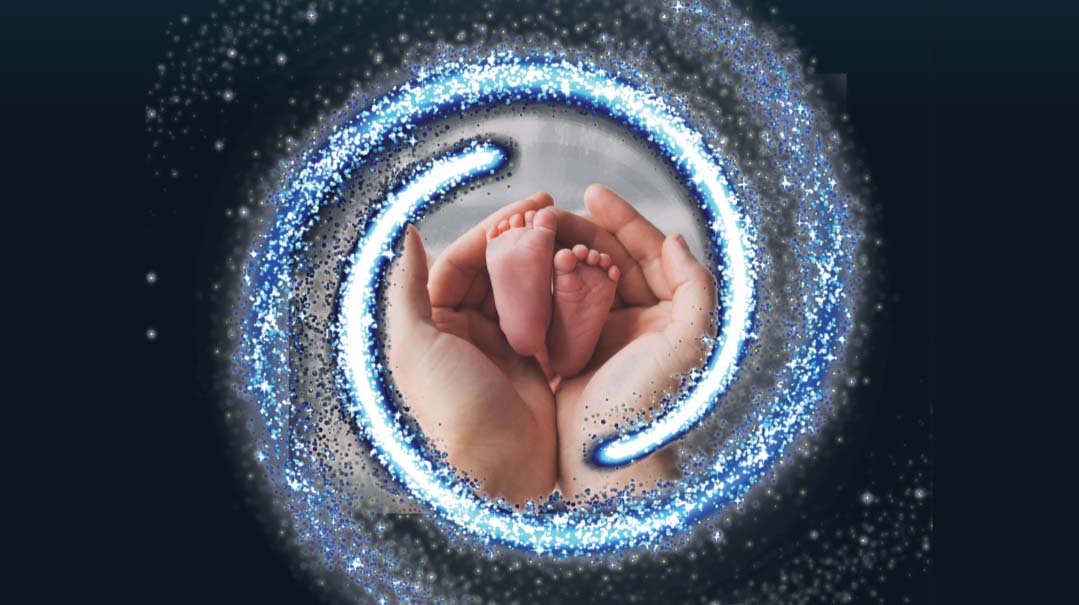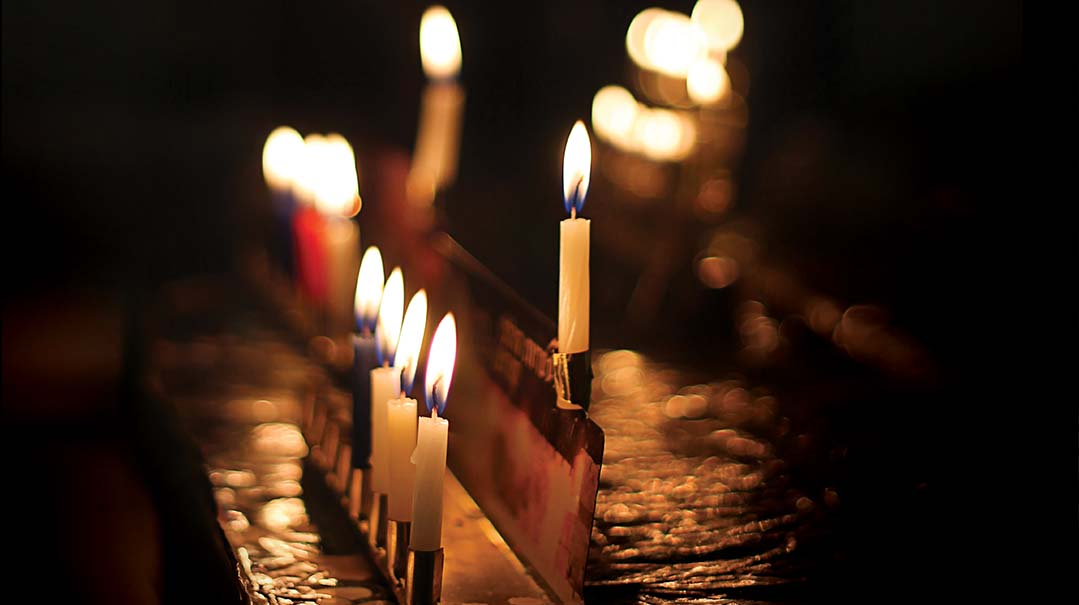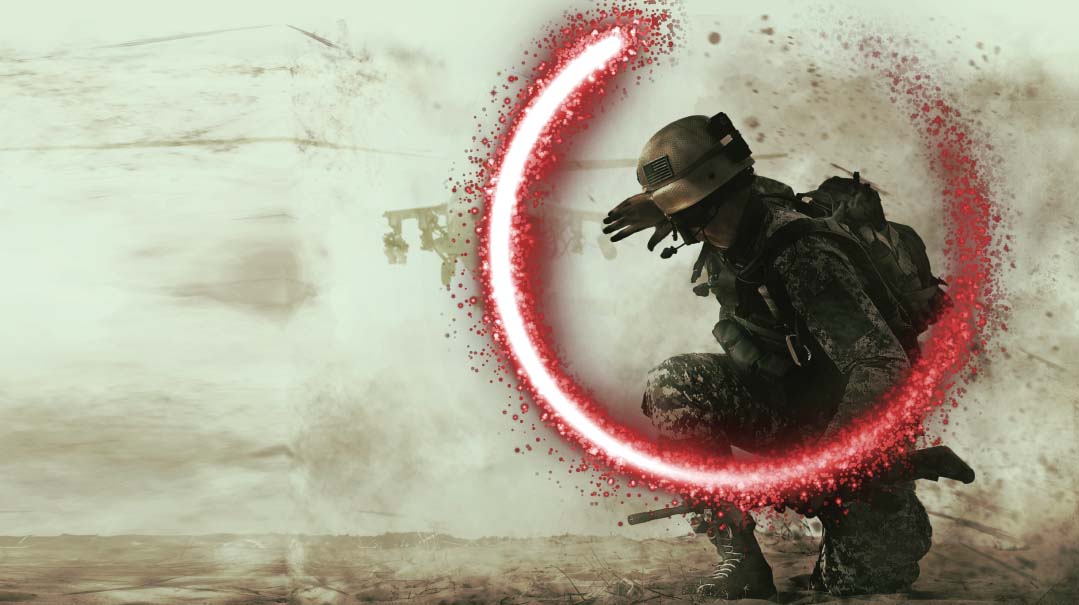Happy Birthday
| November 30, 2021Alight. Five stories of salvation

Miracles surround us. Often, they’re muted and barely noticed. But sometimes, Hashem pulls aside the curtain of nature, and reveals His Hand openly
When my cousin Chaya asked if our family would join them for a Shabbos bar mitzvah in Teveria, I didn’t hesitate. “Sure!” I said looking at the calendar. It would be more than a month before my due date. “But there are hospitals near Teveria just in case, right?” I was a little nervous, since my first had been three weeks early, with no warning.
But at the last minute, my husband came down with the flu, and we had to cancel our bar mitzvah attendance. Instead of traveling up north, we were busy preparing simple Shabbos meals for us and our toddler.
On Friday, I was in the living room giving the couch a long stare.
“Mindel, what are you doing?” my husband Naftali called from the kitchen.
“Oh, I was just thinking there’d be more room in here if we…” …and I was already starting to push the couch to the other end of the room, when I felt something. “Uh, Naf…”
I called my doula for advice, and not long afterward, we were in a cab on our way to Shaare Zedek, prepared to spend Shabbos in the hospital. In the waiting room, we got the usual delineation of protocol: In the state I was in, they induce.
Being just short of starting my ninth month, I wasn’t really interested in an induction, and luckily the hospital wasn’t pushing for it to happen immediately. They put me on a waiting list, and I was admitted to the high-risk pregnancy ward. Shabbos passed uneventfully. Tuesday would be the 36-week mark, and a kind doctor agreed to let me wait until then for any medical intervention.
On Sunday night, I was a little dizzy and started panting. My breathing became heavier and more strained. I felt like I was gasping for air. I’d never experienced anything like this earlier in the pregnancy or in my previous one. “Okay, relax,” I told myself. But after a hot shower, I felt like I’d just finished a 20-mile marathon and could barely get myself into bed.
I called a nurse, who took my vitals. Everything seemed to be fine. “We’ll tell the doctor in the morning. For now, just go to sleep.”
In the morning, the doctor ordered an EKG and wasn’t pleased with the results. “Something’s not right here,” I heard him say, and suddenly the medical staff were asking to see my legs. They were using terms like suspected blood clot and CT scan, but I was so overwhelmed I didn’t process much.
“Wait,” I interrupted. “How can you do a CT? Isn’t that dangerous for the baby?”
“Right now, our main concern is you.”
That’s something you never want to hear when you’re expecting.
The doctors couldn’t decide what to do with me; apparently there’s no protocol for a suspected blood clot this late in pregnancy.
Meanwhile, I was in contact with my family in America to update them. They understood full well the implications of a blood clot, and had already put me on a few community Tehillim lists. But seeing I was oblivious to the seriousness of the situation, they didn’t want to worry me, so they just kept sending me reassuring messages and asked me to keep them posted.
Late Monday night, the doctors finally came to a decision. “The ultrasound shows signs of a blood clot in your legs, even though there is no external evidence of one. Your EKG showed that your heart is working too hard. While some of the staff here think that’s enough to make a diagnosis with, we’ve decided it’s best to do a CT scan and see exactly what we’re dealing with so we can arrange properly for the birth.”
Around dawn on Tuesday, they conducted the scan. A few hours later, a doctor came in and told me grimly, “You have a massive pulmonary embolism.” I thought he was just being dramatic — I didn’t know “massive” was a clinical term. The words pulmonary embolism (which I later found out meant a blood clot that has broken off and traveled to the lungs) were gibberish to me. I didn’t know that what he was really saying was, “You have a ticking time bomb inside you, which could put you into cardiac arrest at any time.”
And I had some news of my own. “I think I’m starting to feel contractions.”
“That’s not a problem,” the doctor said, waving it off. “It’s probably nothing yet.”
“But with my last birth, my waters broke early and once contractions started, it was over pretty fast.”
The doctor still didn’t seem concerned. I figured, okay, they’ll see later I was right. I didn’t realize how dangerous spontaneous labor could be at that point.
Next, a whole team of doctors came in to see me. There were two other beds in the room, and they asked, “Where is the patient with the pulmonary embolism?”
I introduced myself.
“You? Can’t be!” Apparently, most people with this condition are severely incapacitated, and usually have huge veins popping from their legs. I had none of that. In fact, I looked quite chipper. My breathing had returned to normal, and I felt fine.
A few minutes later, a nurse came in to help me pack up my suitcase. “We’re transferring you to the cardiac ICU.” Again, gibberish. I’d never visited an ICU in my life and didn’t have a clue what it meant to be a patient in one.
When I was being wheeled into the ward (which I felt was totally unnecessary — “Why can’t I just walk?!”), the nurse said to me, “You’re the first patient I’ve ever seen come in here with a smile.”
I was impressed by what appeared to be a spacious, one-person room. Much better than the squishy cubicle on floor nine! It soon became obvious why I had a private place. They needed the floor space for the huge heart monitor machine that I needed to be hooked up to constantly. The nurse told me I couldn’t leave my bed, not even to ease a contraction. When I tried to bounce on my exercise ball, I was scolded and ushered back into bed by a very perturbed nurse.
Not understanding how dangerous my situation, was the biggest brachah. Had I realized that my life was on the line, the stress of that knowledge alone could have killed me.
But everyone else present did realize.
The heads of gynecology, cardiology, and hematology all met to figure out how to best treat such a delicate case. Doctors came in one after the other with various plans. They told me they wanted me to hold on for two more weeks before giving birth, to give me time to heal. But when I told them I felt the contractions were getting stronger, they panicked. They had to decide if there was enough time to do an emergency surgery to insert a filter in my abdomen to prevent further clotting during delivery. But they were scared I’d have the baby on the operating table.
They went back and forth a few times, telling me to change into a gown for surgery, then telling me to wait, until they finally sent me down to the operating room for the procedure.
Strapped to an operating table, I was told to stay still even as labor progressed. “You can squeeze my hand if you need to,” a sweet nurse said, “but don’t move.” The next hour was agony. When the surgery was over, the nurse declared, “By the frequency and intensity with which you’ve been squeezing my hand, I think it’s time to go to the delivery room.”
Again, I was told that because I was attached to a heart monitor, I couldn’t move. There was no option for pain relievers, because I was taking blood thinners. And a C-section was out of the question because of the danger of hemorrhaging.
I remember turning to my husband at that moment and saying, “I can’t do this.”
And he said back to me, “You can — you already are.”
“I was terrified,” my husband later told me. “I was sitting in the waiting room during the delivery not knowing if this coming Shabbos I’d be making a shalom zachar or would be in the middle of sitting shivah.”
When the baby cried and they saw I was still breathing, everyone let out a sigh of relief. I’d given birth to a healthy baby boy. The “joke” in the family was that while our first baby had gone to the NICU, this time, I went to the ICU while the baby went to the regular nursery.
I spent almost another full week in the hospital and was released right before the bris on a high dose of blood thinners.
Even at that time, I still didn’t fully realize how dangerous the situation had been. It was only when I went to my hematologist for a follow-up and asked when I could stop the medication that it really hit me. “We can’t take any chances right now,” she said. “We almost lost you.”
Those dramatic words struck a chord with me. I almost died that day! My family almost lost me forever.
Every year, on our son’s birthday, we make a seudas hoda’ah. We try to share our story with people who haven’t heard it yet. Every time I repeat the story, it’s with newfound gratitude for my little boy, and for my own life. More than anything else, it reminds me of how much I mean to the people in my life and how much they mean to me.
(Originally featured in Family First, Issue 770)
Oops! We could not locate your form.






